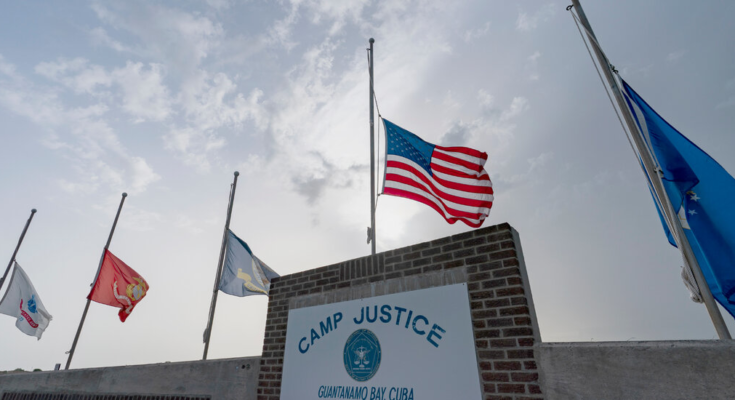Lawyers for the three prisoners also told the judge that the court’s official Indonesian translator had in 2020 offered the opinion that “the government is wasting money on these terrorists; they should have been killed a long time ago,” and added that they had a sworn affidavit from a witness who heard the remark. Prosecutors are seeking life sentences in the case.
Mr. Bin Lep’s lawyer, Brian Bouffard, declared the Indonesian-American contract translator “irretrievably biased.” Mr. Bin Amin’s lawyer, Christine Funk, questioned why the prosecutors needed an interpreter at the arraignment hearing in the first place: “Are they spying on us? I don’t know.”
The trial judge, Navy Cmdr. Hayes C. Larsen, tried to mend the problems. He gave the official court translation team 10-minute breaks every 20 minutes. He told defense lawyers to file legal motions if they believed there were interpretation problems that required remedies. And he postponed until Tuesday the reading of the charges, which was the reason for Monday’s hearing.
Defense lawyers, both civilian and military, and all paid by the Pentagon, described the case as still in its infancy. Prosecutors, they said, had provided perhaps 2 percent of the pretrial documents that could be used in the case, including accounts of interrogations the F.B.I. did in 2007 with the prisoners soon after their transfer to military custody from the C.I.A. Prosecutors declined to comment.
Mr. Hambali’s lawyer, James R. Hodes, called the case “absurd,” in part because of the length of his client’s detention and the nearly two-decade delay in bringing charges against him. He told reporters before the hearing that Mr. Hambali had been “brutalized” and spent at least half of his detention in solitary confinement. He said the prisoner was owed “an apology” and repatriation, “not to be held in a cage in a Caribbean island.”
Hearings at Guantánamo have been mostly held between English and Arabic, but have also suffered translation problems. In 2015, one of the men accused of plotting the Sept. 11 attacks blurted out the name of a translator in court — and disclosed that the linguist had previously worked for the C.I.A. at a black site, exposing his identity and derailing a week of hearings.



